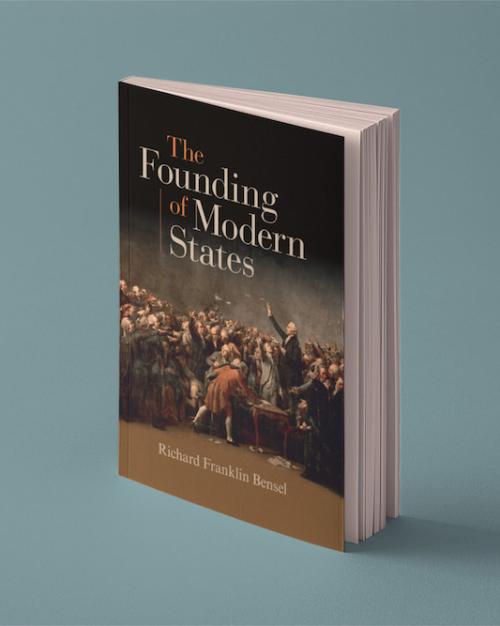Which came first, the democratic state or the will of the people?
In his book “The Founding of Modern States,” Richard F. Bensel, the Gary S. Davis Professor of Government in the College of Arts and Sciences, examines how six modern states – three democratic and three not – came to be.
By comparing Britain, the United States and France side-by-side with the Soviet Union, Nazi Germany and the Islamic Republic of Iran, Bensel uncovers a paradox at the heart of every modern state founding: a people cannot collectively participate in the founding of a new state without prejudging and predetermining the outcome of their participation. His state-by-state analysis details the myths required to secure political and social order in the modern era.
The College of Arts and Sciences spoke with Bensel about the book.
Question: Would you briefly describe the “democratic dilemma” at the heart of this book?
Answer: All modern foundings have entailed a mythological conception of the will of the people and are legitimated by a belief that the people naturally and spontaneously embraced the state created by that founding. The dilemma arises from the fact that, in practice, all modern foundings must presume the people’s will before it can create a state and that there is no logical way in which that people’s will can be revealed in the absence of the formal political institutions.
One way of thinking about this dilemma is that there is both a “chicken” (a democratic state) and an “egg” (the will of the people) and we cannot logically maintain that one of them has generated the other. Unlike this analogy, we also cannot assert that they somehow generated each other by evolving together because, for one thing, once a state is created it determines how the will of the people will be conceived and that determination is emphatically neither natural nor spontaneous.
Question: Why did you organize the book into two categories, the founding of democratic states and the founding of non-democratic states?
Six modern foundings are examined in this book. Three of them involved the creation of non-democratic states: the dictatorship of the proletariat that arose out of the Russian Revolution; the fascist regime brought to life in 1933 Germany; and the Islamic republic that emerged during the Iranian Revolution.
While fascinating in their own right, these serve as a useful foil for the founding of three states whose sovereignty rests, in whole or in part, on their dedication to those principles we have come to associate with traditional democracies: the unwritten English Constitution as the embodiment of the rights of Englishmen; the American Constitution that was created after those rights of Englishmen were denied to the colonists; and the French Revolution that asserted the rights of man as a justification for its demolition of monarchy and the decadent remains of feudalism.
However, the distinction between non-democratic and democratic foundings largely depends on the normative commitments of the founders because all foundings must resolve the “democratic dilemma” one way or another. The comparison demonstrates that: (a) even the founding of democratic states must rest upon undemocratic presumptions; and (b) even the founding of non-democratic states rests upon a presumption that the new regime has been willed by the people.
Question: Do states’ founding stories have anything to do with their longevity or success as a state?
The “will of the people” is a mythological conception that arose with the Enlightenment and modern forms of market capitalism. These things have shaped much of the bedrock of modern societies. For that reason, those foundings that more fully embrace them have been more stable over the long run. However, the Enlightenment and market capitalism have also spawned a rather ruthless skepticism that is now undermining the irrational grounds of the mythological conception of the “will of the people.” As a consequence, the relative longevity of what we might call more fully democratic states is no longer as likely as it has been in the past.
Question: Is there such as thing as a “good” state founding? Of the six cases you present, which one might you look at and say, “They did it right.”
Of the six foundings in this book, the English example could, perhaps, be considered the best for two reasons. First, the democratic dilemma has been veiled in the “mists of history” where it is not easily interrogated as a logical construction of empirical facts. All the others clearly display the contradictions between theory and practice if we only care to look at them. Second, the mythological, simultaneous emergence of “Englishmen” and their state has meant that the people and their state completely complement each other like a hand in a glove. The downside to the English case is that the mythological conception of the founding tends to alienate the Scots and Irish who contributed little to the “standard English narrative."




